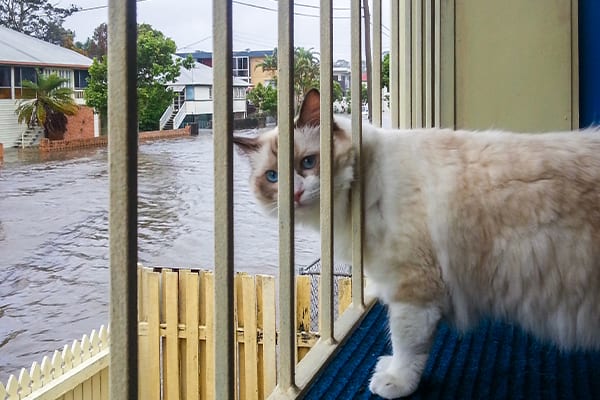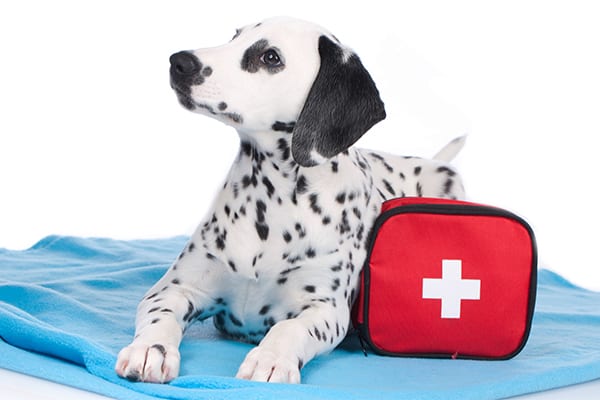Preparing Your Pet for Emergencies and Disasters in Canton
Most of us tend to have at least a vague plan of what to do in the case of a pet emergency. Whether it be a house fire, severe weather, or any other emergency, you need to include your pet in your plan, too. At Riverstone Animal Hospital, we want to help you prepare for a disaster to lessen not only your pet’s stress level, but your own!
Steps to Take
With a detailed plan in place, you will likely remain calmer and handle the situation with a clearer head. Disasters come in a variety of sizes and intensities. It could be a wildfire, flood, severe weather, or more personal emergencies such as ingested poison or traumatic injury. Regardless of the emergency, an ideal pet owner is always prepared for both themselves and their pets! We’ve collected a list of key information and links to better help you prepare for the worst, so you can meet it with your best!

Poison Substances
An average home has numerous poisonous substances for your pet—and many of them may be completely harmless to you. Here are some common toxins for pets:
- Chocolate, coffee and caffeine
- Grapes and raisins
- Milk and dairy products
- Xylitol, a common sweetener found in chewing gum, candy, and even some peanut butters.
- Nuts, with macadamia nuts being particularly dangerous
- Yeast dough, which can cause bloat in the stomach and become potentially a life-threatening emergency if the stomach twists.
To learn more about toxic substances, check out ASCPA Animal Poison Control, and download their app, too!
If your pet ingests any of these foods, contact ASPCA Animal Poison Control immediately at (888) 426-4435 and follow their instructions.

Weathering Severe Storms, Floods and Fires
Severe weather typically comes to us here in Canton in the form of tornadoes or remnants of a hurricane. While our weather is probably a little lacking in the severity department, it’s still a good idea to have a plan in place. If in the event of extreme weather, you do have to evacuate or decide to seek shelter, having a plan in mind will help orient you and your family to fastest route to safety. Keep these things in mind:
- Make sure your pet has ID information on their collar and is microchipped in case they get lost during the storm.
- Familiarize your pet with your shelter or crawl space well before you ever have to use it. This will make them more comfortable in the space and more likely to come with you without fussing in the event of a storm.
- Put together a pet evacuation kit, in case you do have to leave. This should include your pet’s vaccinations records, identification, medication and instructions, food and water, a first aid kit, newspaper and plastic bags, as well as a leash and/or harness.
- Look up pet-friendly hotels and boarding facilities on your evacuation route and know where the veterinarian is in the area where you will seek temporary shelter.
- Always handle your pet in a calm, gentle manner as they feed off your emotions.
An additional step you can take is to order pet alert stickers and wallet cards that let authorities like the fire department know about your pets in case of an emergency. You can order them from a number of sources including APSCA, Chewy, and of course, Amazon.
For more information about disaster planning please refer to these pages on AVMA and Ready.Gov. Additionally, don’t hesitate to give us a call if you have any questions or concerns!

